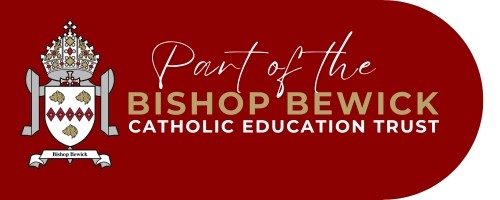
MUSIC
INTENT:
Music makes an important contribution to the life of every school and should be celebrated, promoted and encouraged. It helps build pupils’ self-esteem and self-discipline and leads to higher standards across the curriculum. Research clearly demonstrates the cognitive benefits that music gives young children, suggesting music can support the development of literacy, numeracy and listening skills. The Department for Education has stated that a high-quality music education can improve self-confidence, behaviour and social skills as well as improve academic achievement across the curriculum.
‘A high-quality music education should engage and inspire pupils to develop a love of music and their talent as musicians, and so increase their self-confidence, creativity and sense of achievement.’ Department of Education, National Curriculum
At St. Teresa’s our aim is to provide a music curriculum which will enable each child to reach their full potential in music, encourage children to enjoy singing, composing and performing and provide children with the opportunity to perform in front of an audience both within and outside of school. We aim to ensure all children are provided with a music curriculum that creates opportunities to be creative and expressive with the skills and knowledge they develop over time.
Our curriculum aims to ensure that all pupils:
can confidently perform either singing or skilfully playing an instrument, either solo or as part of a group.
compose and create songs with verses and chorus and create rhythmic patterns and an awareness of timbre and duration; digital technology may be used to compose, edit and refine pieces of music.
begin to transcribe and use standard musical notation and read and create notes on the musical stave.
Describe music, using a wide range of musical vocabulary to accurately describe and appraise.
IMPLEMENTATION:
Our curriculum is centred around ‘Sing Up’, a music-based scheme, in which the children learn to sing and play instruments in a progressive way. Using this scheme ensures pupils receive the highest possible quality of teaching and learning experiences in music that we can offer as it supports teachers to deliver music and optimises learning experiences for pupils. In line with the curriculum for music and guidance from the DFE, this scheme adopts an integrated, practical, exploratory and child-led approach to musical learning. The interrelated dimensions of music weave through the units to encourage the development of musical skills as the learning progresses through listening and appraising, differing musical activities (including creating and exploring) and performing.
Music activities begin in Reception and lessons are taught throughout the school on a weekly basis as we understand the important nature of building specific skills regularly in this subject. Children will receive at least one Sing Up lesson each week and they will also take part in group singing sessions such as hymn practice, class singing or as part of the unit of work.
Pupils learn to play instruments through the units; however, each KS2 class is also taught to play either glockenspiel or Ukulele by a skilled music teacher for a term during the year. They also have an opportunity to develop an understanding of pulse, rhythm and notation. The programme incorporates the use of technologies, enabling the children to compose their own pieces.
Sing Up Musical enables children to understand musical concepts through a repetition-based approach to learning. Learning about the same musical concept through different musical activities enables a more secure, deeper learning and mastery of musical skills.
Over time, children can both develop new musical skills and concepts, and re-visit established musical skills and concepts.
IMPACT:
Each unit of work is assessed against our age related expectations. These are a set of skills, directly linked to the National Curriculum, which we expect pupils to achieve at the end of each year group in music. A music unit will often culminate in a class, group or individual performance and showcase the learning that has taken place. Teachers use this performance, alongside knowledge of the pupils’ work throughout the unit to make a judgement based on if they have achieved the chosen key skills for that unit. Teachers ensure that progress is evident through video-based evidence to show what the children could do at the beginning of a new unit if work and what they could do by the end of the unit. Children watch and evaluate their own progress, offering them opportunities to reflect on what they have learned to give them a sense of satisfaction and success, as well as set goals for future learning. There are progression specific progression snapshots which are recorded three times per year. These recordings track the progress of music throughout a child’s time at St Teresa’s.
Opportunities to perform in and outside of school, within our local environment, ensure our children understand music has a significant place within the wider world and that it can excite and inspire children’s thirst for knowledge and participation. In addition to this, we hold school performances throughout the year. Classes demonstrate their drumming skills by performing their finished piece for a wider audience, including parents, Our Reception and KS1 classes perform a musical nativity play and KS2 lead church services and perform an end of year show.


